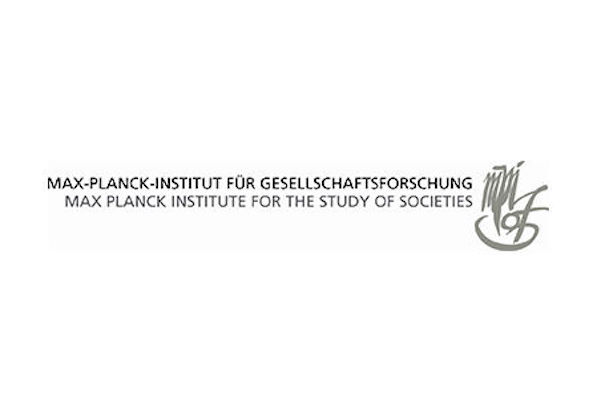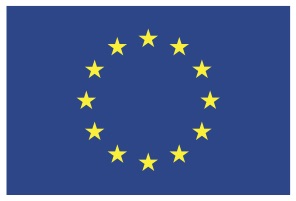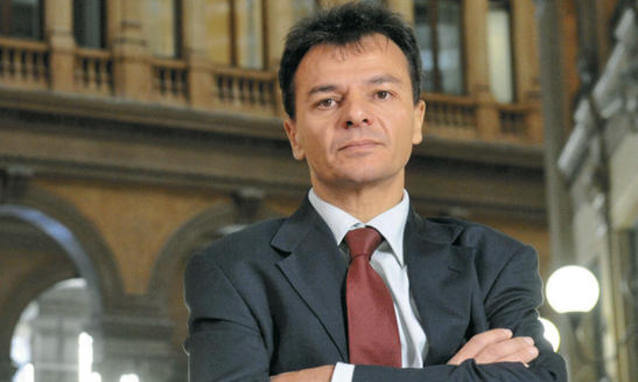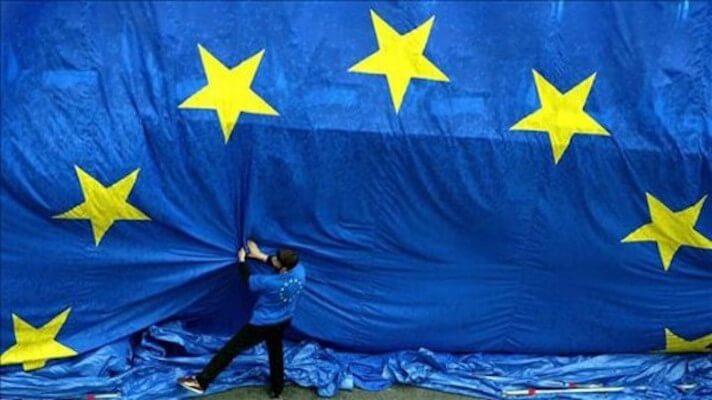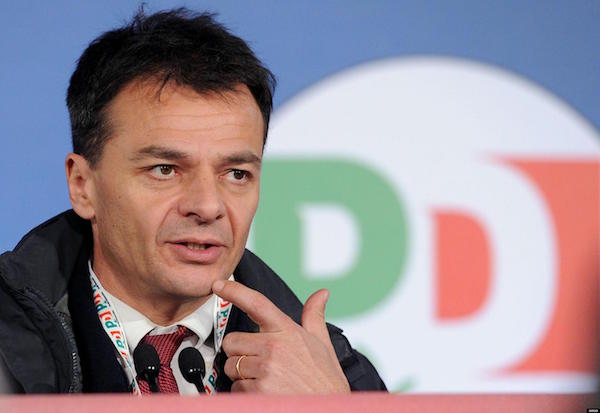Abstract
The Brexit has put the question of the final goal of integration on the agenda. The debate is characterised by a binary logic: either ever more deepening of integration or total disintegration with falling back into a system of nation states. While further integration is stopped by the heterogeneity of member states returning to the nation state is unrealistic, as European integration overlaps and is amalgamated with globalisation. There is a third way: flexibilisation through selective integration in certain areas and selective disintegration in others, based on variable coalitions of the willing.
By Peter Wahl
For the first time in the history of the multiple EU crises, the Brexit raises for the broad public existential questions about the future of the EU. Former crises have always been seen as exceptional challenges, which can be kept under control in the given framework. And this framework was the continuous deepening of the integration process, the ‘ever closer union’ as stipulated in the preamble of the treaties. At the end this would lead to the political union, the United States of Europe.Crises were seen as obstacles on the way to this goal but the goal as such was not put in question. This is the essence of the ‘European idea’. Although euro-scepticism both from the right and the left is on the rise, the followers of the European idea are still dominating among elites in many member countries, and in some key countries also among the people, for instance in Germany (PEW Research Centre, 2016).
But things might change now. The Brexit has another quality than the 2008 financial crash, the subsequent debt crisis of the Eurozone, economic stagnation, or the refugee problem. What makes the difference is the heavy blow for the self-confidence for the European idea. It is a tremendous narcissist hurt for all who believed that the EU would be the best of all possible worlds. Just like a husband who all of a sudden is abandoned by his wife, they could not imagine that a country could leave the EU. Now they see that the soft power, which they considered to be such an attractive asset, proved to be too weak for the UK. And now they realise that the British might not be the only ones, whose enthusiasm for the EU is rather limited.
Hence, in the statements of the top personnel in Brussels and in the capitals of the member states there is broad consensus that business as usual is impossible now. Basically, there are three options for a way out of the present situation, of course with sub-variants:
-
the great leap forward, as it has been proposed for example by Martin Schulz, chair of the European parliament (Schulz, 2016) and supported by prominent personalities such as Jürgen Habermas (Habermas, 2016). They want to upgrade drastically supra-national governance, cover the democratic deficit, and establish an EU parliament with full-fledged rights;
-
returning back to the system of the nation states from the nineteenth and the first half of the twentieth century, as advocated by right-wing and nationalist parties such as the French Front National;
-
a type of cooperation, characterised by two principles: flexibilisation within and opening towards the outside world. This would mean selective integration in certain areas with variable participation and disintegration in certain others, and this also with variable participation. As a working title, we call it here ‘differentiated integration’.
The option of muddling through can be considered as a sub-class of option 2, because it is an unstable mode of operating and will first lead to continuous erosion and earlier or later to explosive disruption.
Structural Barriers for Eurotopia
First of all the ‘more Europe’-approach is unrealistic for the foreseeable future. All opinion polls confirm that even among the so-called pro-Europeans, many favour a moratorium in the integration process. Also important sectors of the elites in key countries such as France, Poland, and Italy do not want further transfers of sovereignty to Brussels. Donald Tusk, president of the EU Council, represents well this stream of thinking. Three weeks before the UK referendum he said:
It is us who today are responsible for confronting reality with all kinds of utopias. A utopia of Europe without nation states, a utopia of Europe without conflicting interests and ambitions, a utopia of Europe imposing its own values on the external world. … Obsessed with the idea of instant and total integration, we failed to notice that ordinary people, the citizens of Europe do not share our Euro-enthusiasm. … The spectre of a break-up is haunting Europe and a vision of a federation doesn’t seem to me like the best answer to it. (Tusk, 2016)
Tusk is right, for several reasons that I am outlining below.
The Nation State—No Phase-out Model
The first category of reasons has to do with the unbroken robustness of the nation state and of national identities. In spite of globalisation and European integration, the nation state remains the dominant form of organising society, both worldwide and in the EU—whether we like it or not. The Habermas assumption of the post-national constellation (Habermas, 1998), or Hardt/Negri’s concept of the Empire (see Hardt & Negri, 2001) proved to be theoretically exaggerated and empirically flawed. At the latest after the 2008 financial crash the nation state was the only actor which disposed of the financial, legal, and political instruments to cope at least in some degree with the challenges. The EU instead was marginalised in the crisis management. No wonder, its statehood is the peculiar mix between an alliance of nation states and supra-national components. This hybrid is structurally weak compared to nation states. Also major arrangements for stabilisation, such as theEuropean Stabilisation Facility, were established outside the EU rules through intergovernmental agreements. The supra-national structures and procedures could not deliver what was needed to overcome the crisis.
Of course, the nation state is an ambiguous phenomenon. It creates a space of particular dense and intensive communication between its citizens, which leads to the establishment of a specific identity. This is normal, all human communities develop group specific identities. However, national identity can turn into nationalism and similar behaviours, such as xenophobia and racism—not automatically but under certain conditions.
Nationalism is not an essentialist category but an ideology, which is determined by other factors. Already in the nineteenth century, the German philosopher hit the point when he wrote: ‘Every miserable fool who has nothing at all of which he can be proud adopts, as a last resource, pride in the nation to which he belongs’ (Schopenhauer, 1861, pp. 342–343; German, transl. PW).
In other words, when people are marginalised and underprivileged, if respect and dignity is refused to them, if their social status is threatened, nationalism is one way to compensate for that, in particular, in the absence of an emancipatory alternative. Indeed, four decades of market fundamentalism, liberalisation, deregulation and privatisation have loosened social cohesion and created an ever-deeper social polarisation. The rich are getting richer, the middle class is frightened by social insecurity, while the poor are getting poorer and marginalised. The UK was since the Thatcher era a forerunner of these developments in the EU. In addition, the management of the 2008 financial crisis through austerity has further worsened the situation. Those who could not cope with the requirements of the new age take their revenge now, as we can see well in the social structure of the British referendum.
But here is also the key for a remedy: ending austerity and changing the economic paradigm towards social cohesion, public welfare, and solidarity would not solve all problems, but it would dry up at least by half the camp of the supporters of the Farages and LePens.
Too Much Heterogeneity
A second category of reasons, why supra-nationalism has not worked as expected, is the economic heterogeneity of the EU member states. In the name of solidarity the advocates of deeper integration suggest to bridge the gaps through transfers from the richer to the poorer countries, in particular under conditions of crises. However, the differences between the highly developed economies in Northern and Western Europe and the economies of the South and the East in economic and social terms are so wide, that only unrealistically high transfers could overcome them.
There are calculations according to which the richer countries would have to pay between 8% and 12% per annum of their GDP over at least a decade in order to bridge the gap (Artus, 2012; Sapir, 2012). In such a ‘transfer union’ the German share would be between 272 bn. and 408 bn. Euro. The concept of solidarity is a noble ideal. But when it comes to the real figures, no German, Dutch, or Finnish government would survive more than three weeks, if it would agree to such a solution.
Neo-liberal Constitutionalism Is Dividing the EU
In addition, the socio-economic heterogeneity of the EU is deepened by the basic rules of the Union. The centrepieces of integration are market integration and competition. Unlike social or environmental issues they are governed by hard law and can be enforced by the European Court of Justice. Critiques call this neoliberal constitutionalism (see Gill, 2002). As abundant experience shows, market competition leads to inequality if there is no corrective mechanism through political intervention. So, the rules by themselves constitute a barrier to harmonisation and real integration.
A strategy to overcome this problem would have to change the economic paradigm. But this requires a change of the treaties. Changing the treaties, in return, requires unanimity among all member states—in other words, another utopian project. Of course, an alternative would be that a major country—let us say Italy, France, or Germany—or a coalition of countries are simply ignoring the treaties, breaking the rules, or even threatening to leave the EU. The French Parti de Gauche (Left party) has proposed such an approach. Jean-Luc Mélenchon, the candidate for the left in the French presidential campaign, has launched the slogan: The European Union, we change it, or we leave it! (L’Union européenne, on la change ou on la quitte! (Mélenchon,2016)).
Unanswered Questions of Supra-national Democracy
Finally, there is the democratic deficit of the EU, which has been described very often (Wahl, 2013, pp. 17–19). Even Euro-enthusiasts such as Schulz admit that there is a big problem, when he suggests ‘to transform the European Commission into a real European government, a government which is liable to the control of the European Parliament and a second chamber representing the member states’ (Schulz, 2016).
But, how to process such a proposal? There is no European public, no communication between EU citizens, which would be comparable to the public that exists at national level. However, such a communication would be the precondition for a functioning democracy. Only a community whose members are communicating with each other over common issues can constitute the ‘demos’, the sovereign of democracy.
Furthermore, the nation state and modern democracy are genetically and structurally amalgamated. The territorial principle and its borders are the precondition for the constitution of citizenship. But there is no equivalent for democracy at international or transnational democracy by now. All examples, from the UN, over the IMF to the EU show substantial democratic deficits and unresolved problems compared to democracy in nation states. As long as there are no answers to these questions, deepening integration is only possible without and against the citizens.
The Nationalist Illusion
The rising right-wing movements and parties promise that a return to the system of European nation states as it existed in the nineteenth and the first half of the twentieth century would bring the solution. To begin with, such a reversion is no longer possible. The economic, juridical, communications, cultural, and other interrelations have become so dense and intensive, that even Marine LePen would quickly come up against their limits if she tried to test them. Would she kick out the Mercedes plant in Lorraine, where some 1000 workers are producing the SMART? What about the network of Deutsche Bank subsidies all over France? And what should happen to the Airbus Corporation, which is a French–German–British–Spanish joint venture?
Either there is a negotiated exit, then compromises would be required. Or it is a disruptive and confrontative separation, which would have such destabilising effects on the country, that LePen would rapidly lose the support of her electorate. Indeed a frequently voiced and cogent criticism of right-wing parties is that they would not make good on their promises if put to the test. Apart from the already-mentioned economic and political costs of an exit, there are two main reasons for that.
First, they all stick, although with nuances, to the neo-liberal paradigm. Hence, their economic receipts would not solve the social problems, which are behind popular dissatisfaction and protest. Second, a fundamentally new component has come into play, which was not present in the first decades of European integration: globalisation. Although this process is not the end of the nation state, as already mentioned above, it has affected the nation states and changed the relations between them. Since quite some problems today have taken on a transnational character, cooperation across borders has become imperative, even if the world’s political power hierarchy makes the pressure to cooperate look different for Burkina Faso than it does for the US, and different for Switzerland than for China.
This means that integration within the EU overlaps and is modified and amalgamated by a similar but more embracing process. This has become a reality in many spheres. Accordingly German exports are increasingly shifting towards non-European markets. The financial industry of the EU has already since years expanded its terrain of activities to global markets, as the EU is not enough for them. And of course the Internet establishes a global interconnectedness, which cannot be restricted nor to national borders neither to a continent. It is not possible any more to disconnect from globalisation and the attempt to return back to the old style of nation state is doomed to fail.
The Third Way
If the ‘ever closer union’ is a utopia and the return to the system of the nation state an illusion there is nevertheless a third option: differentiated integration, based on the respect for diversity and plurality and the interest in international cooperation. For the internal development of the EU this would be a mix of selective integration and disintegration (Nölke, 2013, p. 7), organised along principles such as decentralisation, regionalisation, and subsidiarity. Of course, it would have to be a managed process.
Towards the outside world it would mean more openness, particularly to neighbouring regions such as Northern Africa, Middle East, Balkans and Russia and the Eurasian Economic Union. It could also include the transatlantic area, under the condition that it becomes not part of a new geo-political bloc, a kind of economic NATO.
Participation of member states would be based on the idea of variable geometry, that is, coalitions of the willing. To give an example: those who want to cooperate for ambitious targets in CO2 reduction can do this, even if not all 27 member states participate. Vice versa can those who stick to their nuclear or coal-fired power plants do this without blocking the others. Unity at any price at the lowest common denominator, which leads too often to paralysis, would end.
The same procedure could be applied in all other areas such as refugee politics or the economy. If a country opts for austerity, it can do this for itself. But austerity cannot be imposed anymore to others, as it happened to Greece and others. If a country prefers a Keynesian approach to economy, let it do it. In that case the currency system would have to be adapted, too. Under the straight-jacket of the Euro regime such a flexibility would be impossible. So, if a country or a group of countries wants to leave the Euro, it can do it—in a managed way and concerted with the others who want to remain.
Of course, differentiated integration would not put an end to the dispute between the major political orientations and economic paradigms. But the decision is transferred inside the respective member states and hence within the established rules and institutions of democracy. Decisions thus get democratic legitimacy and avoid the unresolved problems of supra-national democracy. It would not be possible any more to impose decisions from democratically not legitimised gatherings, such as for instance the Euro-Group, the Troïka, etc.
Differentiated integration would also break with the path-dependency of neo-liberal constitutionalism. Essentially it would mean a reduction of the supranational components and their replacement by quasi-intergovernmental agreements. The agreements could be facilitated by common institutions, which means that the Brussels institutions could continue to exist but with a focus on servicing and supporting the member states. Of course, it is reducing the supra-national component of the EU. In particular the power of the ECB and the European Court of Justice would shrink.
Differentiated integration is less exotic, than it seems at first glance, because there exist already several cases where it happens de facto. The split of the EU-28 into the Euro zone and the non-Euro zone is an example, as well as the Schengen agreement. Not to talk about the informal differentiations between, centre and periphery, rich states north of the Alps and the crisis countries in the South, debtors and creditors, NATO members and non-NATO members, etc. Also the cooperation of Poland, the Czech Republic, Slovakia, and Hungary in the Višegrad Group is such a case. Recently it worked successfully in refusing the refugee policies as suggested by Germany and the EU Commission. One might dislike the content of their decision of the Group as nationalist and xenophobic, but trying to impose another attitude through supra-national pressure does not work—and if it would work it would probably be counterproductive.
Furthermore, already now the regulations of the EU foresee a procedure, which contains in embryonic form the idea of differentiated integration: the Enhanced Cooperation Procedure (ECP). Already now a group of at least nine countries, representing 60% of the EU population and 75% of votes in the Council, can establish projects without the others. At present, the financial transaction tax is negotiated in such a coalition of 10 willing member states. The rules of the ECP are still too restrictive and rigid, but the concept goes into the right direction and can be further developed.
Will differentiated integration not lead to a total disruption at the end? I do not think so, because the existing links, in particular in the economy and the respective interests are so strong, that cutting them would lead to economic suicide. Furthermore, neighbouring countries have common interests per se: in trade, in infrastructure, movement of people, etc. Of course, much would also depend from an appropriate set up of the remaining institutions. If they succeed to really serve as a facilitator in the new framework and prove to be beneficial for all, such a type of European Union would find more acceptance than the present model.
Of course, differentiated integration means to say farewell to the ever closer union, to the sacralisation of the EU and the nostalgia for a European super-power. But this is in any case preferable to an uncontrolled process of erosion or even confrontative disruption.
